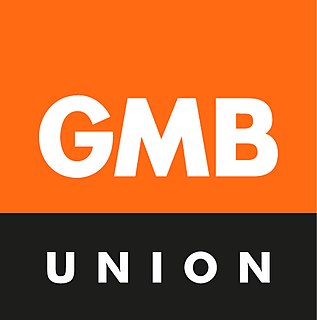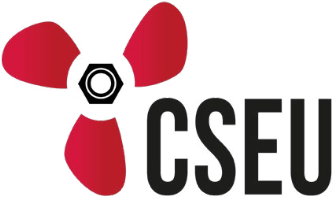A trade union, often simply called a union, is an organization of workers who have come together to achieve many common goals, such as protecting the integrity of their trade, improving safety standards, and attaining better wages, benefits, and working conditions through the increased bargaining power wielded by the creation of a monopoly of the workers. Trade unions typically fund the formal organization, head office, and legal team functions of the trade union through regular fees or union dues. The delegate staff of the trade union representation in the workforce are made up of workplace volunteers who are appointed by members in democratic elections.
Freedom of association encompasses both an individual's right to join or leave groups voluntarily, the right of the group to take collective action to pursue the interests of its members, and the right of an association to accept or decline membership based on certain criteria. Freedom of Association, The Essentials of Human Rights describes the right as coming together with other individuals to collectively express, promote, pursue and/or defend common interests. Freedom of Association is both an individual right and a collective right, guaranteed by all modern and democratic legal systems, including the United States Bill of Rights, article 11 of the European Convention on Human Rights, the Canadian Charter of Rights and Freedoms, and international law, including articles 20 and 23 of the Universal Declaration of Human Rights and article 22 of International Covenant on Civil and Political Rights. The Declaration on Fundamental Principles and Rights at Work by the International Labour Organization also ensures these rights.

The GMB is a general trade union in the United Kingdom which has more than 631,000 members. Its members work in nearly all industrial sectors, in retail, security, schools, distribution, the utilities, social care, the National Health Service (NHS), ambulance service and local government.

The Norwegian Confederation of Trade Unions is a national trade union center, decidedly the largest and probably the most influential umbrella organization of labour unions in Norway. The 21 national unions affiliated to the LO have almost 900,000 members of a Norwegian population of 5 million. The majority of affiliated unions organizes traditional blue collar workers, but the largest affiliate is the Norwegian Union of Municipal and General Employees which makes up more than a third of all members. LO is affiliated to the ITUC and the ETUC. Gerd Kristiansen was elected leader on 6 May 2013 for a four-year period.

Napo is the trade union and professional association that represents probation staff including probation officers and other operational and administrative staff and Children and Family Court Advisory and Support Service staff in England.

Trade Unions in India are registered and file annual returns under the Trade Union Act (1926). Statistics on Trade Unions are collected annually by the Labour Bureau of the Ministry of Labour, Government of India. As per the latest data, released for 2012, there were 16,154 trade unions which had a combined membership of 9.18 million. The Trade Union movement in India is largely divided along political lines and follows a pre-Independence pattern of overlapping interactions between political parties and unions. The net result of this type of system is debated as it has both advantages and disadvantages. Bharatiya Mazdoor Sangh is the Largest Trade union of India.

The International Textile, Garment and Leather Workers' Federation (ITGLWF) was a global union federation. In 2005 it had 217 member organizations in 110 countries, representing a combined membership of over 10 million workers.

The National Union of Public Employees (NUPE) was a British trade union which existed between 1908 and 1993. It represented public sector workers in local government, the Health Service, universities, and water authorities.

The Association of Scientific, Technical and Managerial Staffs (ASTMS) was a British trade union which existed between 1969 and 1988.

The General Federation of Trade Unions (GFTU) is a national trade union centre in the United Kingdom. It has 35 affiliates with a membership of just over 214,000 and describes itself as the "federation for specialist unions".

The National Association of Co-operative Officials (NACO) was a trade union for staff in the co-operative sector in the United Kingdom, principally the Co-operative Group and other retail societies, Co-operatives UK and the Co-operative Party.
The United Order of General Labourers was a trade union representing labourers, mostly in the construction industry, in the United Kingdom.
The National Association of Youth Hostel Wardens was a trade union representing workers at youth hostels in England and Wales.
The Northern Textile and Allied Workers' Union was a trade union representing cotton factory workers in northern Lancashire in England.

The Federation of South African Trade Unions (FOSATU) was a trade union federation formed at a congress over the weekend of 14–15 April 1979 in Hammanskraal and officially launched five days later on 20 April. Its roots lay in the unions which had emerged from the spontaneous 1973 strike wave by black workers in Durban and Pinetown.
The British Association of Social Workers (BASW) is the largest professional association of registered social workers and qualified care managers in the United Kingdom. The association has a members' code of ethics that outlines best social work practice and works to support social workers and care managers through education and resources. Headquartered in Birmingham, BASW has regional offices in England (Birmingham), Northern Ireland (Belfast), Scotland (Edinburgh), Wales (Cardiff), and North Wales.

The Confederation of Shipbuilding and Engineering Unions (CSEU), often known as the Confed is a trade union confederation in the United Kingdom.
The National Union of Blastfurnacemen, Ore Miners, Coke Workers and Kindred Trades (NUB) was a trade union in England and Wales which existed between 1888 and 1985. It represented process workers in the British iron and steel industry.
The Amalgamated Textile Warehousemen's Association was a trade union representing workers in the textile industry in the United Kingdom, principally in Lancashire.
The General Union of Lancashire and Yorkshire Warp Dressers' Association was a trade union representing workers involved in preparing warp yarn for weaving who were based in northern England.










